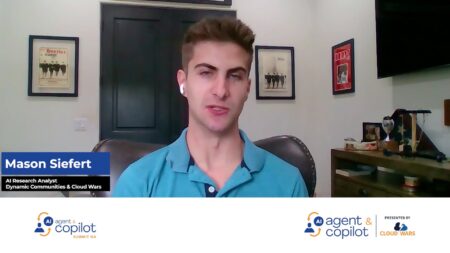Welcome to the AI Ecosystem Report, featuring practitioner analyst and entrepreneur Toni Witt. This series is intended to deliver the timely intelligence about artificial intelligence (AI) you need to get up to speed for an upcoming client engagement or board meeting.
This episode is sponsored by Acceleration Economy’s AI Ecosystem Course, available on demand. Discover how AI has created a new ecosystem of partnerships with a fresh spirit of customer-centric cocreation and renewed focus on reimagining what is possible.
Highlights
Innovation (00:51)
A new AI tool called HeyGen uses AI to translate your voice into different languages. It simultaneously deepfakes your lips to match the words that you’re saying in that new language. The tool makes it look as if you’re speaking the language; some people may not even be able to tell that you’re using AI to produce this.
It allows businesses to reach a more global audience as well as drastically reduces the time and effort required to translate video content. This technology doesn’t just enable people who speak different languages to communicate more easily. There are opportunities for brands and businesses to build this tech into their internal and external communication strategies to drive engagement, build trust, break into new geographical markets to build new audiences, and even unite cross-border workforces.
Funding (03:53)

Innovative startup Wraithwatch is a new cybersecurity company that builds AI to fight AI security threats. It just received an $8 million round of seed funding led by the Founders Fund.
With the advancements of large language models (LLMs) and code generators, malicious actors can identify a vulnerability and have an LLM to auto-generate an abundance of different versions of the software to take advantage of the vulnerability. The variety of versions makes it so there isn’t a one-size-fits-all solution, making it a challenge that’s harder to resolve.
With these cases, a tool is needed to combat the increase in the volume of threats coming from generative AI. Wraithwatch built a fundamentally reactive solution, developing AI that will automatically flag and prevent these malware scenarios. It’s also working toward increasing the speed at which new blockades can be put into place, building the platform so it not only detects threats but auto-generates solutions in real time.
Essentially, Wraithwatch is automating the intervention process which is key to providing solutions. The startup is expected to release its product in 2024.
Solution of the Week (08:02)

Microsoft released a new lightweight model called phi-1.5. With about 1.3 billion parameters, it’s smaller than GPT-4, which has about 1.7 trillion parameters. Phi-1.5 is open-source.
Microsoft researchers have been exploring ways to combine several of these smaller, lightweight models to form groups of AI agents that cumulatively reach the same efficiency and productivity as larger models. The levels of efficiency and capability will influence the pace of AI transformation in every industry. These models may be a better, more power- and cost-efficient system compared to having a single model that’s extremely large.











